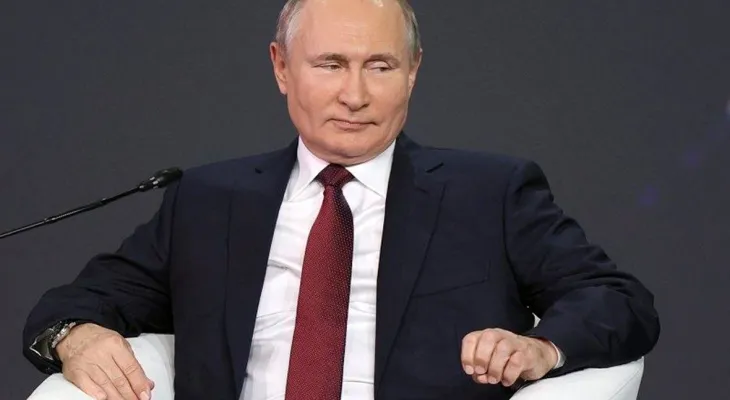Search here
Newspaper
Search here

Arab Canada News
News

Published: March 7, 2024
When Russia began its invasion of Ukraine in late February 2022, a number of famous Russian cultural figures announced their rejection of this invasion, including Russian pop legend Alla Pugacheva, rock star Zamfira, novelist Lyudmila Ulitskaya, and theatre director Dmitry Krymov.
Russian President Vladimir Putin responded to these protests with repression. It is inevitable that the repression of the voices of intellectual opponents to the Russian rulers will continue.
In an analysis published on the website of the Carnegie Endowment for International Peace, American scholar of Russian literature Gleb Moriev said that many wonder about the similarities between the current campaign to suppress dissenting intellectuals in Russia and the campaigns against them during the Soviet era, but the reality is that Putin's repression of intellectuals is completely different from that of the Soviet regime. The Russian government issued an arrest warrant against the émigré writer Boris Akunin, one of Russia's most famous authors, which did not happen in the Soviet era, as no arrest warrants were issued against émigré writers opposing the Soviet regime, such as Ivan Bunin, Zinaida Gippius, or Vladimir Nabokov. Therefore, the idea of a newspaper headline saying "Issuing an arrest warrant against Vladimir Nabokov" was ridiculous.
Of course, if Nabokov had reached the Soviet border, he would have been arrested immediately, but the Soviet authorities hesitated to use their bureaucratic machinery against their ideological dissidents.
When the Soviet Union’s war against independent culture ended in the mid-1980s, those intellectuals who were still alive returned to their country as victors, regained Soviet citizenship, published their novels, broadcast their films, and exhibited their paintings. In other words, the Soviet state acknowledged defeat in the cultural war.
According to Russian literature historian Moriev, Putin and his associates cannot forget this chapter of Russian history. So, why do they persist on the same path that ended with the Soviet Union’s defeat in the cultural war? The answer lies in their unique worldview, values, understanding of history, as well as their complete detachment from reality.
One of the latest examples supporting Gleb Moriev’s view occurred in the city of Kislovodsk in the North Caucasus, where the city mayor decided to erase a famous quote from Soviet ballet dancer and actor Mikhail Baryshnikov, who was born in the Soviet Union and later defected and emigrated to the West in the 1970s, from a wall of one of the city’s dance schools. The mayor said he did not know how this dissident’s quotes were written on the school’s walls. Of course, Baryshnikov’s anti-war stance and Latvian ethnicity make displaying his quotes, whether related to ballet or otherwise, in public places unacceptable.
The relatively rational stance toward dissident intellectuals during the Soviet era can be explained by the Soviet regime’s belief in the importance of culture and its role in changing the world, whereas culture does not seem to have the same importance under Putin’s regime, which views ideology as a tool to solve specific political and economic problems.
The truth is that the current Russian rulers believe only in one institution: the state. They consider it infallible and the cornerstone of nationalism. Culture, on the other hand, is just an identity for some. Dissident writers like Akunin may indeed be talented, but their importance to the state is negligible compared to the higher affairs of the state.
Though the selective approach to culture and intellectuals in Russia is not new—where opponents are marginalized and loyalists are promoted—Putin’s regime places loyalty before everything, even when dealing with works of art.
This approach has become problematic as it contradicts the course of Russian history itself. Many artists praised by the Kremlin as founders of the Russian state are nothing more than a group loyal to the regime. The truth is that most of the culturally influential Russian creativity of the 19th and 20th centuries that remains relevant worldwide was opposed to ruling regimes.
If Putin’s cultural approach continues, the majority of Russian literary heritage may end up blacklisted in Russia. But it is impossible to imagine Russian culture without great writers like Leo Tolstoy, Alexander Pushkin, and Maxim Gorky.
Moscow can claim that no opposition figures exist, but Putin’s ideological machine is currently targeting artists opposing the war in Ukraine. Within the materialistic tendency of Putin’s regime, it seeks to cut off the livelihood of opposing artists through canceling their concerts, withdrawing their books from libraries, or dismissing them from their jobs.
Moriev believes it can ultimately be said that Putin’s regime operates without any strategic understanding of cultural policy, and above all, completely ignores the lessons of history. It moves forward on a path without any thought as to where it might end up.
Comments